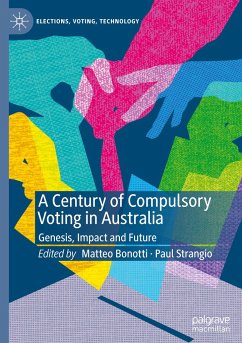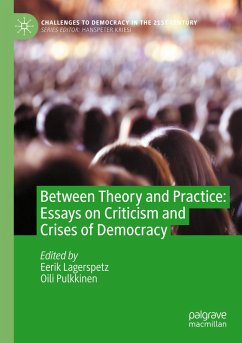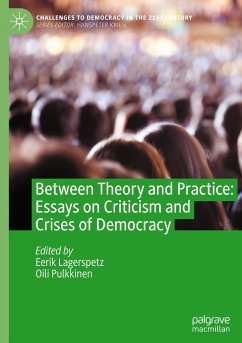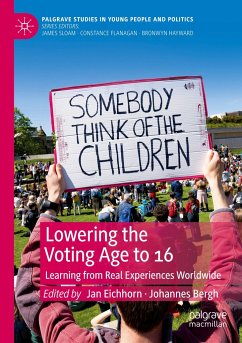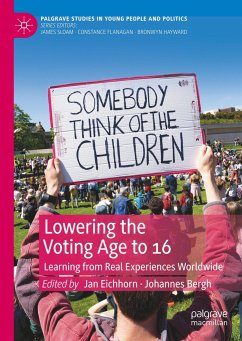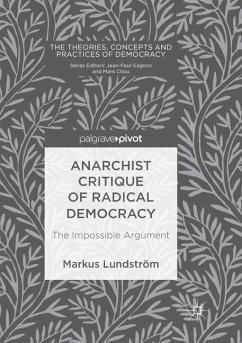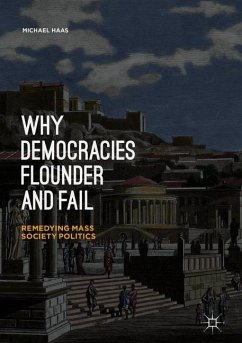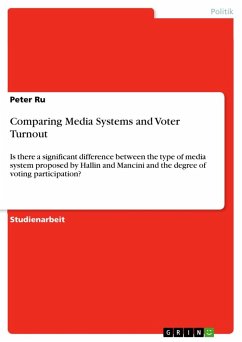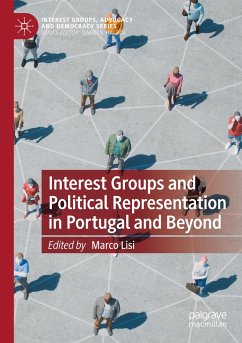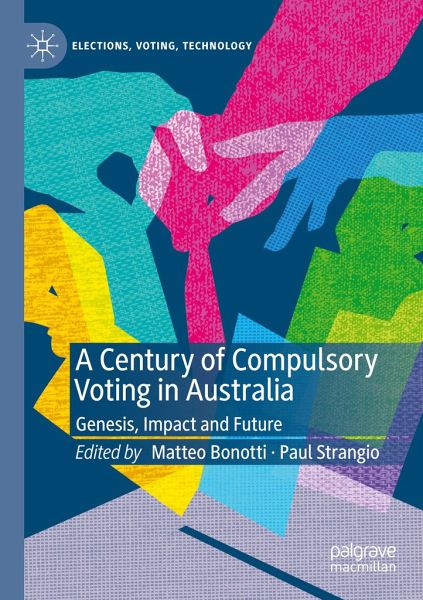
A Century of Compulsory Voting in Australia
Genesis, Impact and Future
Herausgegeben: Bonotti, Matteo; Strangio, Paul
Versandkostenfrei!
Versandfertig in 6-10 Tagen
98,99 €
inkl. MwSt.

PAYBACK Punkte
49 °P sammeln!
Compulsory voting has operated in Australia for a century, and remains the best known and arguably the most successful example of the practice globally. By probing that experience from several disciplinary perspectives, this book offers a fresh, up-to-date insight into the development and distinctive functioning of compulsory voting in Australia. By juxtaposing the Australian experience with that of other representative democracies in Europe and North America, the volume also offers a much needed comparative dimension to compulsory voting in Australia. A unifying theme running through this stu...
Compulsory voting has operated in Australia for a century, and remains the best known and arguably the most successful example of the practice globally. By probing that experience from several disciplinary perspectives, this book offers a fresh, up-to-date insight into the development and distinctive functioning of compulsory voting in Australia. By juxtaposing the Australian experience with that of other representative democracies in Europe and North America, the volume also offers a much needed comparative dimension to compulsory voting in Australia. A unifying theme running through this study is the relationship between compulsory voting and democratic well-being. Can we learn anything from Australia's experience of the practice that is instructive for the development of institutional bulwarks in an era when democratic politics is under pressure globally? Or is Australia's case sui generis - best understood in the final analysis as an intriguing outlier?





